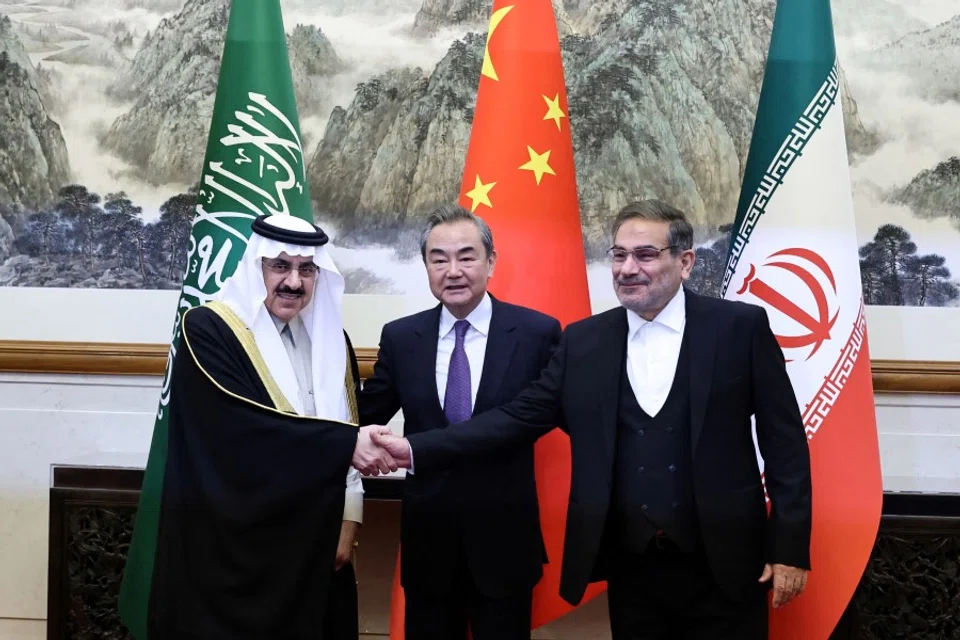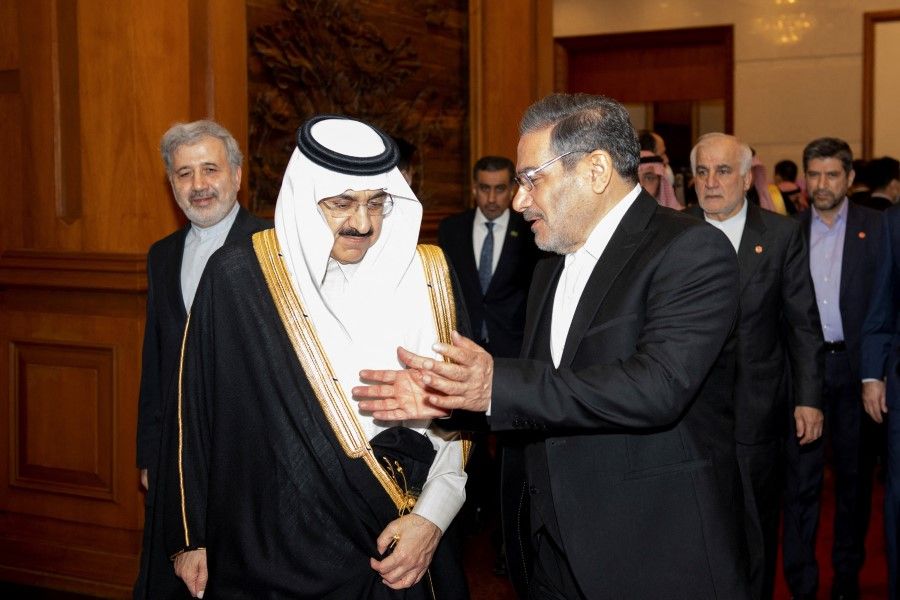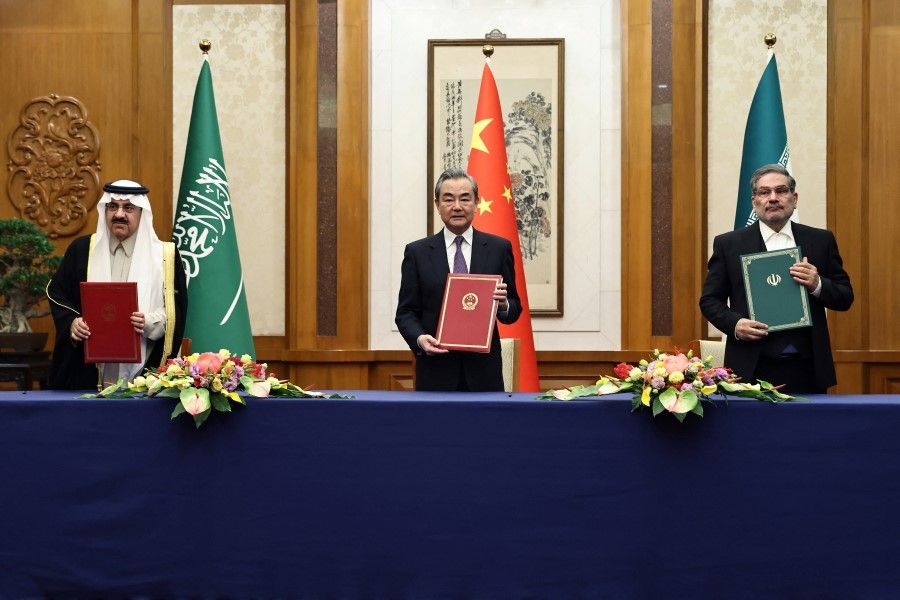Saudi-Iran deal: Diplomacy with Chinese characteristics gaining ground

Tehran, Riyadh and Beijing released last Friday a joint statement confirming a diplomatic rapprochement between Iran and Saudi Arabia, brokered by China. Since 2016, when protestors ransacked the Saudi embassy in Tehran, the relationship between the two countries has been on edge. Nevertheless, the news of the incoming detente caught the West by surprise.
At the time when Xi Jinping was confirmed as China's president for an unprecedented third term, Beijing achieved a diplomatic victory in the Middle East, a region fundamental to China's energy security. The agreement details how Iran and Saudi Arabia will reopen their embassies in two months and provide a path to the re-establishment of diplomatic relations. While Oman and Iraq are part of the facilitation process that led to the agreement, Beijing accelerated the negotiation and reiterated that it "will not seek to fill so-called vacuums or put up exclusive blocs", as mentioned by a foreign ministry spokesperson.
A delicate deal struck
Signed in Beijing by Ali Shamkhani, secretary of Iran's Supreme National Security Council, Musaad bin Mohammed Al-Aiban, the Saudi national security adviser, and Wang Yi, China's top diplomat, the agreement stands on a delicate foundation but is nevertheless an essential step towards regional stabilisation.
... China is evolving its decades-old passive principle of non-interference into an active stance.

While the global security architecture is in flux, and the Gulf states perceive the US pivot to the Asia Pacific as an abandonment, the geopolitical balancing act is the new name of the game. At the same time, an abundance of exogenous and internal factors could derail the rapprochement, starting with the ongoing proxy war in Yemen. Several fighting groups on the ground have their own agency, which does not necessarily exactly agree with Riyadh or Tehran's demands.
A precursor of the Chinese diplomatic embrace in the Middle East was given by the December state visit by President Xi to Saudi Arabia and the more recent visit by Iranian President Ebrahim Raisi to China. The comparison between the lavish reception that welcomed President Xi's visit to Saudi Arabia last December with the cold shoulder reserved for President Biden during his state visit to the Kingdom speaks volumes. An expanding diplomatic embrace now reinforces the ongoing Chinese financial- and technology-expanding footprint in the region.
China's more active stance and fine-tuned messaging
While Beijing is not disputing the US leading position as the Gulf security guarantor, China is evolving its decades-old passive principle of non-interference into an active stance. Counting on the preferential economic relations with Saudi Arabia and Iran, Beijing was able to fine-tune and broker the agreement. After decades of foreign policy statements that speak a language that resonates only in Zhongnanhai's walls of power, Chinese diplomacy is reaching the intended audience outside China.
... the Saudi-Iran agreement echoes the Chinese message that economic development goes hand in hand with security stabilisation.

As an example, during Xi's recent visit to Kazakhstan, the message ''to strongly support Kazakhstan in defending its independence, sovereignty, and territorial integrity'' was very well received by the local population. At the same time, the Kazakh officials knew the limits of China as a security guarantor. Similarly, Wang Yi stating that ''this world has more than just the Ukraine question and there are still many issues affecting peace and people's lives" resonated well in the global south. This is especially when the West is accused of double standards in the coverage of conflicts from Yemen to Afghanistan compared to Ukraine.
Providing an alternative to the West
In this respect, the Saudi-Iran agreement echoes the Chinese message that economic development goes hand in hand with security stabilisation. While it's too early to predict the detente's long-lasting effects, the immediate gain is Beijing being perceived in the region not only as an economic juggernaut but also as a reliable mediator. The danger is not for Beijing, but for Saudi Arabia to overplay its balancing act in a complex and fast-changing security environment. Nevertheless, Saudi's bold move could pay off, forcing the US to re-evaluate its relationship with the Kingdom.
While the US Central Command is still maintaining a leading role in the fast-changing Middle East security architecture, it is yet to be seen how the Western narrative of liberal democratic order will be able to carve space into China's diplomatic offensive. At a time when Xi declared at home to turn the People's Liberation Army into a "great wall of steel to effectively safeguard national sovereignty, security, and development interests", the diplomatic victory in the Middle East is another shot from the Chinese quiver of arrows promoting an alternative to the West in the global south.
Related: Chinese academic: Can China challenge the US's standing in the Middle East? | Will China become an 'empire by invitation' in the Middle East? | Xi's Saudi visit: Middle powers uniting in a hierarchical world | China's entry into the Middle East: Beginning of China-US full-scale confrontation
